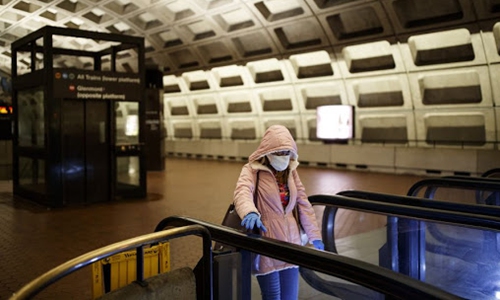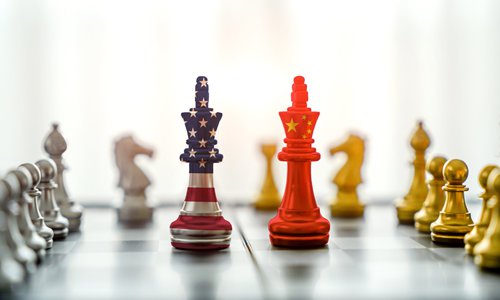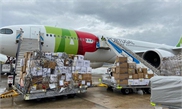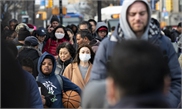
Matsuda said one way Malaysia can become more resilient in times of trouble is to ensure equal basic infrastructure for all, which includes efficiency in government assistance as well as making information more accessible.
“There is definitely room for improvement in terms of transparency and the dissemination of cash transfers. The cash transfers were a good idea but leakages and wastage did take place,”
- Yasuhiko Matsuda
Digital divide results in poor people having no access to government assistance during Covid-19
KUALA LUMPUR: Malaysia needs a stronger infrastructure in place in order to mitigate any future crises that may arise and impacting its people and economy, says World Bank country manager for Malaysia, Yasuhiko Matsuda.
Matsuda said while the majority of people suffered during the Covid-19 pandemic, smaller businesses and vulnerable households were impacted more, partly because they had little or no access to government assistance.
“One main reason was because of the digital divide. Poorer people had no Internet and so they didn’t have the information they needed to apply for these forms of assistance,” he said.
He was speaking to reporters during the “Building Malaysia’s Resilience, Lessons from Covid-19 Economic Impact and Policy Responses” conference by the World Bank Group yesterday.
Although nearly 80% of low-income households (monthly earnings of RM2,000 and below) received government assistance, about one-fourth of them did not have access to cash assistance.
More than one-third of households earning more than RM10,000 received the cash assistance.
According to Matsuda, one way Malaysia can become more resilient in times of trouble is to ensure equal basic infrastructure for all, which includes efficiency in government assistance as well as making information more accessible.
“There is definitely room for improvement in terms of transparency and the dissemination of cash transfers. The cash transfers were a good idea but leakages and wastage did take place,” he said.
Matsuda said one challenge that arose in terms of the cash assistance benefit was that while the government managed to cover a somewhat large population, it only managed to give each family a small amount.
He said despite the good intentions, the impact was rendered limited and this showed in the surveys done post-pandemic.
“Moving forward, the government can look at maybe a lesser number of families but provide them with a higher amount of assistance so it is more impactful,” he said.
For the middle class, the government can look into areas of employment or provide people with a mix of different things to try out, especially in this era of digitilisation, he said.
He added that the Madani Economy framework announced this year by Prime Minister Datuk Seri Anwar Ibrahim covers these aspects as the government pledges to work towards realising them.
“A strong economy must go alongside a strong fiscal capacity. Now the key will be how it is implemented,” he noted.
Similarly, World Bank senior economist Ririn Purnamasari said the reality of the “caring effect” of the pandemic recorded some struggling to catch up despite Malaysia’s economy being revived.
“We risk widening the equality gap now and in the future, and as we’ve seen in the report, some sold their assets as a coping method which were meant to generate income,” she said.
The other strategies that could be scarring for people included decreasing essential food expenditure, borrowing from friends and family, and taking children out of school.
While not so evident in Malaysia, it was recorded in countries like Cambodia and the Philippines.
Additionally, Purnamasari said Malaysia needs to be aware of its fiscal capacity and resources, and how it can best help those that need it, while strengthening the economy together.
On top of that, the government should continue collaborating with other relevant bodies to offer labour market programmes for the community.
“One way we will see people moving forward is by upskilling and reskilling them. This will empower them and give them the ability to participate in different fields so it becomes more sustainable for them,” Purnamasari said.
Currently, Malaysia’s labour market is relatively underdeveloped with limited accessibility for workers in the informal sector.
“Integration of programmes across ministries and agencies and increased shock responsiveness can strengthen labour market policies.
“Hiring incentives should be balanced with well-designed training programmes to address skills mismatches,” she said.
Meanwhile, World Bank Group in its latest report noted that Malaysia emerged as a country with strong resilience and plenty of potential for recovery from the pandemic.
The six other countries surveyed for this report included Vietnam, Malaysia, Indonesia, Mongolia, Cambodia and the Philippines.
Notably, Malaysia’s diversified exports and strong trade sector contributed to its economic resilience during the pandemic-induced recession.
“Malaysia’s favourable business environment, ranked highest among the six countries studied according to the World Economic Forum’s Global Competitiveness Index, enabled Malaysian firms to effectively navigate disruptions caused by the pandemic and capitalise on opportunities during the recovery,” the report said.
Among the key takeaways from the report was that the younger, less-educated and informal workers were more negatively affected than the white-collared professionals.
“Self-employed workers or those working for family businesses were more likely than wage workers to experience work stoppages and income loss.
“However, the survey showed businesses that were shedding workers became less productive,” the report said.
Women were also reportedly more susceptible to losing their jobs than men, especially those with a lower income, lower education and who were younger.
The report also showed that digitilisation became the go-to once the pandemic hit and movements were heavily restricted.
“The acceleration of technology adoption created an opportunity for firms and workers to be more productive.
“However, the digital divide was apparent in poorer regions with a lower share of workers working from home,” it said.
Lastly, the report said Malaysia had relied heavily on support to businesses in the form of liquidity, credit and lending below-the-line measures as opposed to providing direct support to households.
While countries like Cambodia, Mongolia and Indonesia recorded higher support for households, Malaysia saw a more thorough level of support for businesses.
“The support to businesses appeared to be more biased towards more productive and larger firms. While the support to households was pro-poor, it was not as responsive to shocks,” it said.
Related news:























